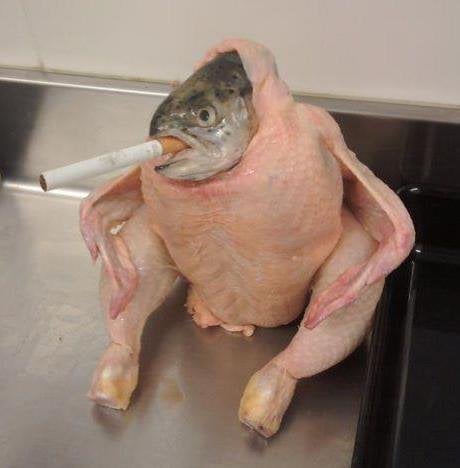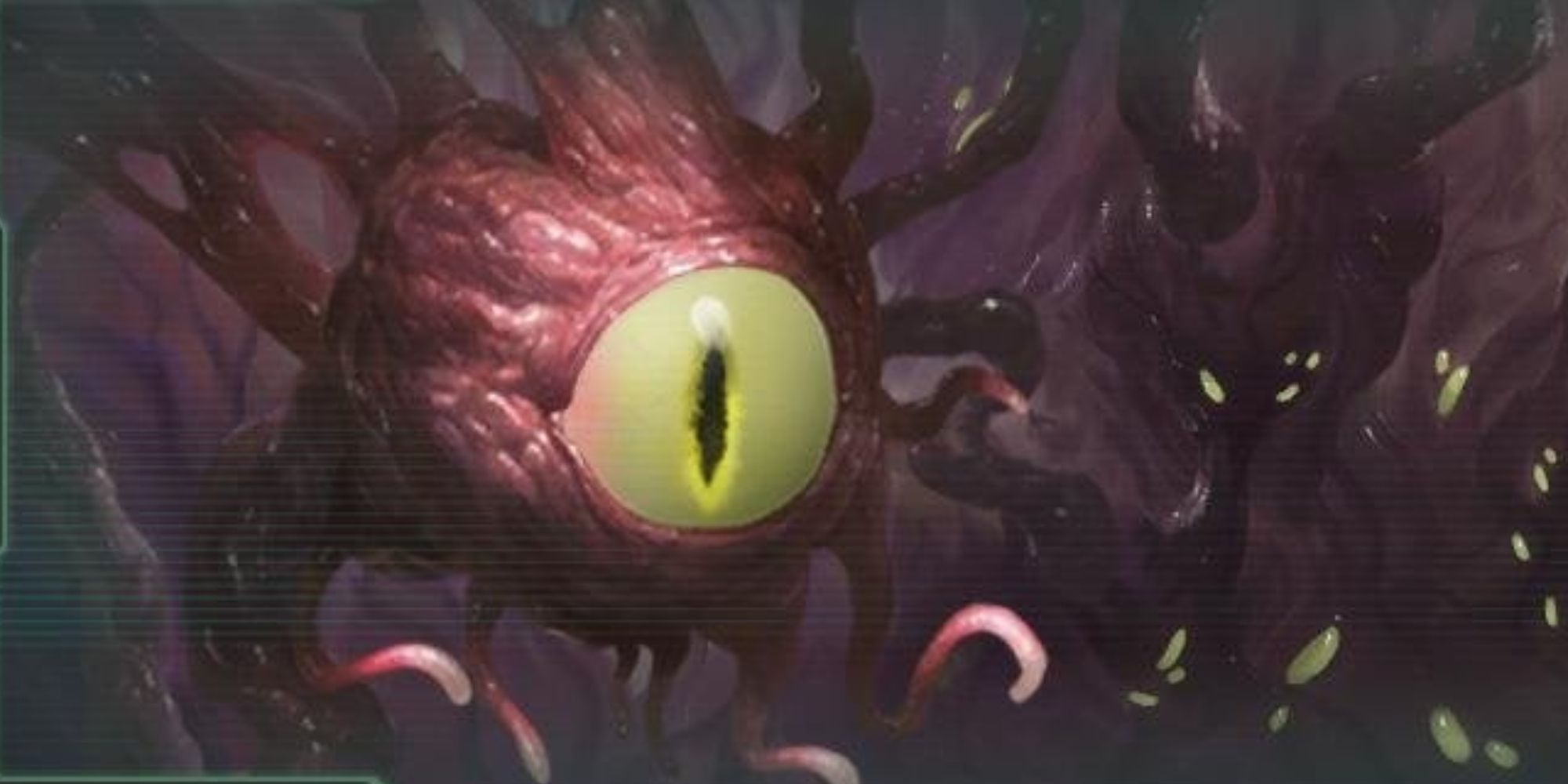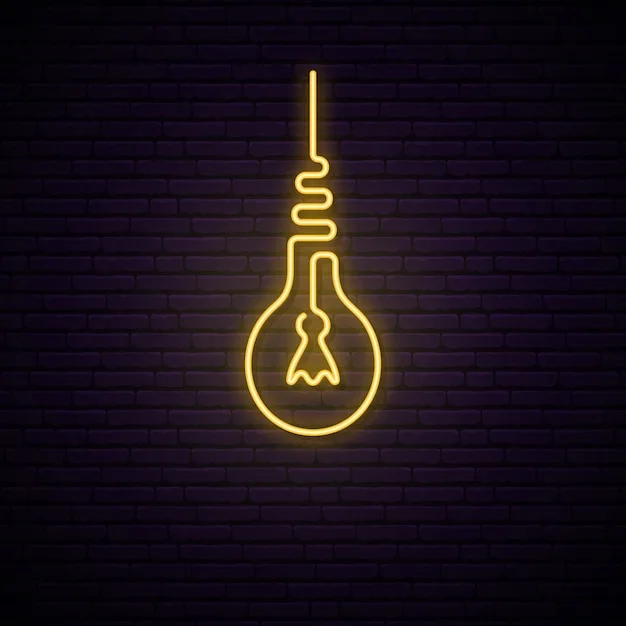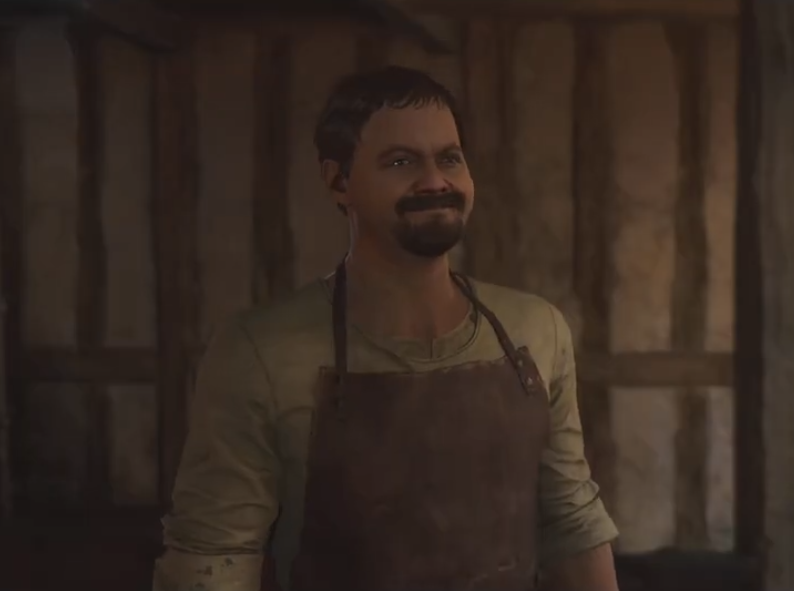Live footage of me reviewing a report that has a repeated word series like this:

I showed my teacher a flork and now she loves them
Hahaha holy shit, some of them are way the fuck out there
Buffalo buffalo Buffalo buffalo buffalo buffalo Buffalo buffalo.
James, while John had had “had”, had had “had had;” “had had” had had a greater effect on the teacher.
😠
You must be loving all the technically correct comments on this post
I came here to post this, it’s my favorite sentence in the English language. Although imo it makes more sense if you switch your “while” for a “where”.
In German the following is a completely valid sentence:
Wenn hinter Fliegen Fliegen fliegen, fliegen Fliegen Fliegen nach.
Which translates to when flies fly behind flies, then flies follow flies. The same works for seals:
Wenn hinter Robben Robben Robben, robben Robben Robben nach.
Some Hungarian prefixes can be piled on without limit, while still creating meaning.
The word “úszni” means “to swim”.
Úsztatni - to make someone or someone swim
Úsztattatni - to make someone make someone swim
Úsztattattattattattattattattattni - to make someone make someone make someone … make someone swimCan be done with any verb, and maybe some other suffixes as well.
Wow, that’s wild. Amazing language
It’s basically a mishmash of Ancient Ugric, Turkish, German, Slavic and Romani words with grammar that is an eldritch monstrosity, nobody really knows where it came from, and it is seriously weird.
There are only two real tenses, but nineteen cases and two different ways of doing imperative, which are kind of equivalent but carry cultural and tonal differences in certain contexts.
Strangely enough, this works in Finnish too:
Uida - to swim
Uittaa - to make someone or something swim
Uitattaa - to make someone make someone swim
Uitattattattattattattattattattaa - to make someone make someone make someone … make someone swim
It’s almost as if they are related languages or something.
English has Buffalo Buffalo Buffalo Buffalo Buffalo Buffalo Buffalo
I don’t know what it means but I’ve been told it is indeed a full sentence.
Bison from Buffalo, New York bully bison from Buffalo, New York who bully other bisons.
There are no buffalo in Buffalo!
The same works in Dutch:
Als vliegen achter vliegen vliegen, vliegen vliegen vliegen achterna.
Although my favourite form of that tongue twister is:
Als vliegende vliegen achter vliegende vliegen vliegen, vliegen de vliegende vliegen vliegensvlug.
When flying flies fly behind flying flies, the flying flies fly rapidly (“flying fast”).
You can say “fleetly” instead of “rapidly”. Actually “rapidly” sounds incorrect when describing flying.
Wenn hinter Robben Robben robben, robben Robben Robben nach.
FTFY
“That that” can and probably should be replaced with “that which” in almost every instance it is used.
Edit: or “when that”
Many times you don’t need the first “that” at all.
Did you know that I play soccer?
Vs
Did you know I play soccer?
That is both true and less “demonstrative”.
I’m surprised that that is your opinion.
Put that in your thatwhich and eat it ;).
It annoys me so much when I feel I need to write a sentence like that that I go to great lengths to restructure sentences to avoid it.
…fuck
Your grammar and sanity are better for it. Actually, most cases I’m which a double that is used you can probably get away with a single that.
It is true that that is almost never necessary.
“It is true that that’s almost never necessary.”
I can’t wrap my head around this, logically it’s still a ‘double that’ but the short form makes it palatable to read/say.
“That that” spoken are two different sounding words so it makes sense. When it goes from verbal to written and I see it, I will almost always try to rephrase things to avoid that combo. It just jumps out as totally wrong.
are they? I just said “I didn’t know that that was how it is” out loud and both thats sound the same
The A is slightly more emphasized in the second that. It’s subtle
must be regional I guess
Could be. So you say them exactly the same and not an inflection shift?
No, why would I
Because you generally put more emphasis on the subject in English
I’ll try and pay attention next time I have to say that that or if someone else says it. I think reading it and over thinking it makes it sound weird
I think it depends on if you want to emphasize something specifically or not. Second ‘that’ is the default it seems, but I first expected ‘was’ to be emphasized in this sentence
In fluent speech, the conjunction (the first “that”) is unstressed, and as a result some speakers reduce the vowel a bit toward schwa. However, if you told those speakers to carefully pronounce each word, I bet they would pronounce the conjunction and the pronoun the exact same same. A more common example of this kind of reduction is the word “to”, which is almost always reduced to /tə/ ([tə] ~ [tʊ] ~ [ɾə] depending on dialect and surrounding words) in everyday speech when unstressed.
Fun fact, you can reduce just about every unstressed vowel in English to schwa (if it’s not already a schwa) and still be largely understood.
It’s called weak forms, this video goes into a lot of details about them, has examples of “that that” as well: https://youtu.be/qlbGtEg68x4
I always read “read” as “read” but now everything’s different.
Read rhymes with lead the same way read rhymes with lead.
That one’s a readily available lead on how to pronounce both those words.
It is read like lead, not read like lead.
Edit: dammit, someone beat me to it.
Have fun. Or an aneurysm, whichever:
Given the fact that that poem is 100 years old, I would have thought that English would have evolved to fix these issues by now. Oh well.
We need a new language I guess. Maybe it’s time to switch to the most popular language in the world (in terms of number of native speakers): Mandarin Chinese.
As someone who has studied it, have fun with that. While that poem is an outlier, there’s still a ton of things that not even inflection or context can solve.
Maybe better use second most popular: Spanish, it at least uses same letters (differently though ¯\_(ツ)_/¯)
The use of emojis is.slowly converting written language back to hieroglyphics, so your new language is already happening.
Sometimes we have a do do problem, too. I do do that, anyway.
Yes its called diarrhoea
Buffalo buffalo Buffalo buffalo buffalo buffalo Buffalo buffalo!
I still feel like the nouns are in the wrong place when I read this.
I’m reading it as “New York cows new York cows bully bully New York cows”
When I want it to read “New York cows bully new York cows” which would be “Buffalo buffalo buffalo Buffalo buffalo” which isn’t enough buffalo.
I have to inset my own “that” to be able to get my head around “Buffalo buffalo (that) Buffalo buffalo buffalo buffalo Buffalo buffalo”
english is dumb. why do we say “hands,” but we don’t say “foots”? why does “goose” become “geese,” but “moose” doesn’t become “meese”? why is “led” the past tense of “lead,” but “red” is not the past tense of “read”? why don’t “good” and “food” rhyme? LIGHT becomes LIT, fight becomes FOUGHT. peek becomes peeked, seek becomes SOUGHT
i could do this all day, but i willn’t
English is three other languages in a trench coat
At least with my accent, good and food actually rhyme
Also the reason behind English being weird is foreign influence, sound shifts and late standardisation
I don’t get it after the 2nd had, any chance someone else understands?
It needs a comma.
All the good faith I had had, had had no effect.
Essentially “all the food faith I previously had, didn’t have any effect”.
Good God English is an awful language.
I’m pretty sure it is grammatically correct with no comma. The version you provided is a comma splice.
To slightly change the tense, All the good faith that I had had no effect is grammatically correct with no comma, so the gerund form should also not need a comma.
Perhaps. Regardless it’s outlandish abuse of the tongue IMO and definitely would benefit from the comma because nobody’s going to just bang out 4 had’s in a row in speech without a pause without a justifiable slap across the chops and possibly a challenge to a duel.
“But your honour, he said ‘had’ four times on the trot without pause”
“Case dismissed”
ah that makes sense, thanks!
You’re welcome. :) Took me a minute tbh. Not sure if the wine I’ve had helped or hindered. It’s 2:30am here.
It doesn’t need a comma, it needs restructuring. When phrasing it like this, it is customary to add a comma between two adjacent verbs. You could even argue that the first part is an introductory phrase, which would explain the comma too.
Why was your food faith no good?
“…did have, did have…”
English has its flaws, but I don’t agree that that is one of them.
dass das das das dass da ersetzen kann ist falsch
translation: that “das” can replace “dass” there is wrong.
same shit different barbarians

















